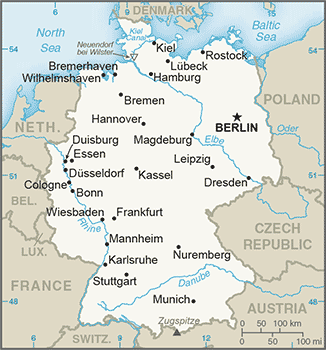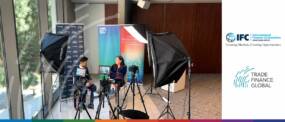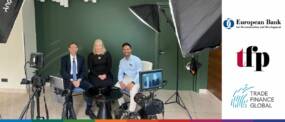
Importing from Germany
Germany Import Guide | Trade Finance Global
Importing from Germany
Directly bordering nine European nations and housing the port of Hamburg, the world’s third largest seaport, Germany is strategically positioned for strong international activities. With a population of 83.2 million and a GDP per capita of $48,200, Germany has the fourth largest economy in the world.
Germany is also the third-largest exporter in the world, with international trade accounting for nearly 45% of the country’s GDP. In 2019 Germany had over $1.5 trillion of exports, primarily to the USA, France, China, the Netherlands, and the UK. Germany’s strong export profile and stable economy has led to their sustained geopolitical and economic importance in the EU.
German governmental policy has promoted the shift to renewable energy, which now accounts for 25% of domestic consumption, with an expected increase in the coming years. This policy shift has led to Germany becoming the leading producers of wind turbines worldwide.
Germany Country Profile
| Official Name (Local Language) | Bundesrepublik Deutschland (German) | Capital | Berlin | Population | 80,722,792 | Currency | Euro | GDP | $3,495 billion | Languages | German | Telephone Dial In | 49 |
Germany Exports Profile
Exports ($m USD)
1,450,215
Number of Export Products
4,408
Number of Export Partners
231
Top 5 export partners
Country
Trade
% Partner Share
United States
126,360
8.71%
France
118,773
8.19%
China
97,774
6.74%
United Kingdom
94,819
6.54%
Netherlands
91,278
6.29%
Top 5 Export Products at HS 6 digit level
Export Product
Number
Motor Vehicles
10.9%
Parts and accessories for tractors, motor vehicles...
4.3%
Medicaments consisting of mixed or unmixed...
3.6%
Powered aircraft e.g. helicopters and aeroplanes;...
2.1%
Human blood; animal blood prepared for therapeutic
1.7%
Chart Showing GDP Growth Compared to rest of world
GDP Composition for Germany
Agriculture
%
Product List
0.6%
potatoes, wheat, barley, sugar beets, fruit, cabbages; milk products, cattle, pigs, poultry
Industry
%
Product List
30.3%
iron, steel, coal, cement, chemicals, machinery, vehicles, machine tools, electronics, automobiles, food and beverages, shipbuilding, textiles
Services
%
Service List
69.1%
Importing from Germany: what is trade finance?
Trade finance is a revolving facility in which lenders offer financing options – it enables businesses to purchase products and can help ease the pressure from working capital issues.
Generally, an export finance bank will fund up to 100% of the cost of the products, including charges (e.g. insurance costs).
Trade finance offers upsides over more traditional bank financing, for example bridging mortgages or loans. Trade finance provides quick funding without affecting existing bank relationships.
How does it work?
If you’re a business importing or exporting goods around the world, then a trade finance facility would assist your company through offering a letter of credit (LC) or some form of cash advance.
I’m looking to import from Germany, how can Trade Finance Global help, and how does it work?
If you’re looking to import inventory from other countries, you may require import finance, which is an agreement between yourself (the importer) and the foreign exporter. A non-bank lender will act as the intermediary, paying the foreign exporter on your behalf until you get the products and have then sold them to your buyer. Repaying the financier then occurs over an agreed period of time.
Information

Importing from Germany? Contact our local experts

Germany Economic Statistics
Government Website
https://www.bundesregierung.de/
Sovereign Ratings
https://countryeconomy.com/ratings/germany
Central Bank
Deutsche Bundesbank
Currency USD Exchange Rate
0.9214
Unemployment Rate
4.3%
Population below poverty line
16.7%
Inflation Rate
1%
Prime Lending Rate
0.25%
GDP
$3,495 billion
GDP Pro Capita (PPP)
$48,200
Currency Name
EURO
Currency Code
EUR
World Bank Classification
High Income
Competitive Industrial Performance
5/138
Corruption Perceptions Index
12/180
Ease of Doing Business
24/190
Enabling Trade Index
9/136
Currency in Germany
Careers | Terms of Business | Get in Touch | Partners
Trade Finance Global is the trading name of TFG Finance Ltd (company number: 10305143) and TFG Publishing Ltd (12157036), incorporated in England and Wales, at 201 Haverstock Hill, Second Floor Fkgb, London, England, NW3 4QG. Trade Finance Global is registered as a Data Controller under the ICO: ZB421903 and ZB436621.
TFG Finance Ltd is an introducer, not a lender, working with Limited Companies and Incorporated Bodies who may pay us a commission.
© 2024 Trade Finance Global
 Australia
Australia Hong Kong
Hong Kong Japan
Japan Singapore
Singapore United Arab Emirates
United Arab Emirates United States
United States France
France Germany
Germany Ireland
Ireland Netherlands
Netherlands United Kingdom
United Kingdom

 British Pound Exchange Rate
British Pound Exchange Rate



